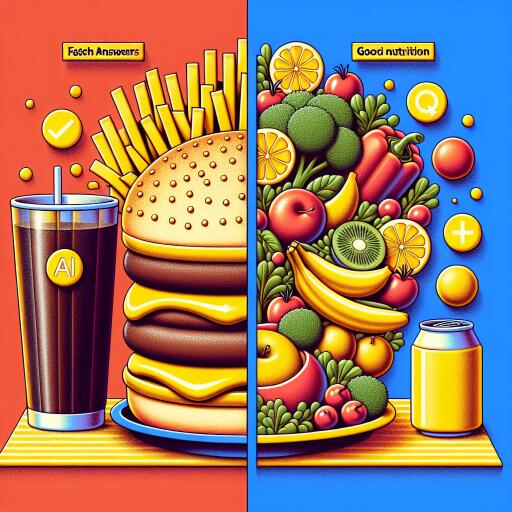AI Search Answers: Fast Food for Your Information Diet
In the digital age, convenience often dictates our choices, especially when it comes to information. Google’s AI Overviews represent the latest evolution in our quest for quick, tailored answers. Initially intrigued by Google’s dabbling in artificial intelligence with LaMDA in 2021 and later the rise of OpenAI’s ChatGPT in 2023, users have been propelled towards an era where generative AI technology delivers personalized responses directly to their queries.
Alongside Google’s knowledge panels and featured snippets, AI Overviews might seem like just another useful tool for navigating the information superhighway. However, unlike its predecessors that pull from existing web content, AI Overviews synthetically generate answers. This approach promises to revolutionize how we interact with digital information, offering concise answers over traditional lists of documents or links.
Yet, convenience comes at a cost. In collaboration with Emily Bender, we’ve explored what users genuinely seek from search engines: not just raw data, but the room for discovery, learning, and critical thinking. The issue with AI-generated content is its potential to sideline user involvement, reducing the opportunity for engagement and critical analysis.
The Misinformation Dilemma
These AI algorithms aggregate information from various sources to conjure answers, possibly sidelining accuracy. For example, while searching for nuanced advice or factual data, users might be fed inaccurately generated content. From bizarre remedies to historical inaccuracies, the room for error is vast, leading to misinformation or, worse, promoting debunked myths as facts.
Recognizing these pitfalls begs the question of trust. Google has attempted to fine-tune its AI Overviews in response to feedback, yet the underlying issue remains: Can we rely on a machine’s interpretation of vast, varied, and complex human knowledge?
Seeking Alternatives
There are workarounds for those skeptical of AI’s interpretive abilities. Resorting to Google’s traditional search method offers a more hands-on approach to information, requiring users to sift through links and form their conclusions. This method reintroduces the human elements of curiosity and critical thinking into the equation.
For those looking beyond Google, specialized search engines cater to various needs. From Google Scholar and Semantic Scholar for academic research to DuckDuckGo for privacy-conscious users, alternatives abound. These platforms offer varied approaches to information retrieval, emphasizing user control, privacy, and accuracy.
A Balanced Information Diet
While the convenience of AI-generated summaries is undeniable, resembling the allure of fast food, it’s essential to remember the benefits of a more detailed, thoughtful approach to information consumption. Like a carefully prepared meal, taking the time to explore topics in depth can yield richer, more nuanced understandings.
In essence, while it’s fine to occasionally rely on quick, AI-generated overviews, cultivating a balanced approach to information consumption—mixing in thorough research and critical analysis—will lead to a healthier, more informed perspective.
The digital landscape offers a buffet of options for acquiring knowledge, and the choice of how to digest this information lies in our hands. By being discerning about our information diet, we can ensure that our intellectual well-being remains robust in the face of fast, convenient, but not always nutritious, AI-generated content.









